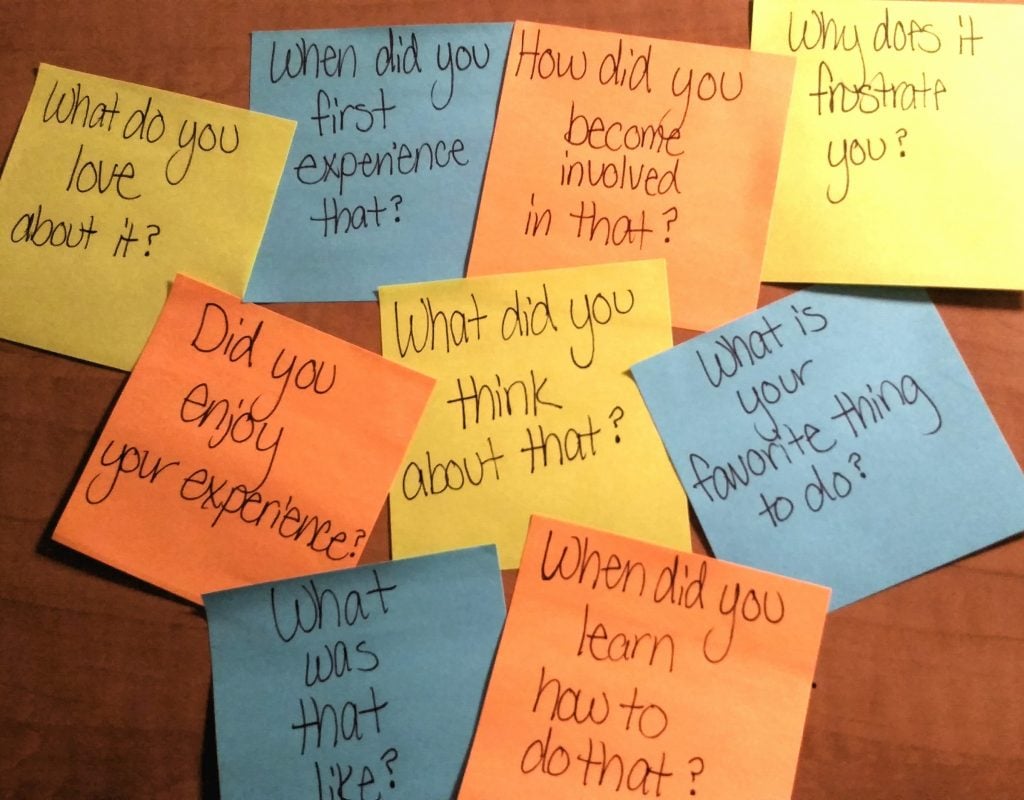How to Up Your Small Talk Game
If you’re an introvert as I am, engaging in small talk is stressful. Small talk can be awkward and, honestly, kind of boring. Often, you run out of things to say and end up standing there uncomfortably, trying to avoid eye contact. At that point, you start panicking and try to think of something else to say or begin planning your exit strategy (or maybe that’s just me).
Unfortunately, though, small talk is part of our culture. We meet new people practically every day. If you ever attend a friend’s party or a networking event for work, you will definitely need to know how to engage in small talk. Or if you’re starting out at a new school or job, you’ll be meeting many new people with whom you’ll want to acquaint yourself. Even if you’re out at a bar, single and ready to mingle, you need to be able to chat it up. Small talk is how you make friends and build connections! To alleviate your stress (and to learn some tips for myself) I’ve compiled a list of tried-and-true ways to up your small talk game.

Know How to Greet Someone
I’m sure you’ve heard it before, and I’ll say it again: first impressions are important. The way you approach and greet someone can set the tone for your entire interaction. Likewise, if someone approaches you, be mindful of the way you respond to their gesture.
Body language is crucial here. Studies have shown that if you smile and leave your arms uncrossed, you will seem much more approachable (Pick the Brain). Don’t spend the entire time on your phone, because that will make you seem uninterested in what’s going on around you. Obviously, that’s not the image you want to project. When you’re already conversing with someone, if you angle yourself towards them, that will signal that you are indeed engaged.
What you say is also very impactful. You can go for a classic greeting, such as asking how the other person is or introducing yourself by name. Another approach is called the complement and transition, in which you compliment someone and then steer the conversation in another direction once the ice has been broken. Either way is fine, as long as you are friendly and genuine.

Start Out With the Basics
There’s nothing wrong with running through the usual questions at the beginning of a conversation. The basic info you often learn about a person includes:
- Hometown
- Profession
- Alma Mater (either college, grad school, or high school)
- Major in college
- Single, in a relationship, or married
- Kids or no kids
- Hobbies
Exchanging this kind of information is the essence of small talk. When you learn the answers to these fundamental questions, you might learn that you have something in common! This is an easy way to then jumpstart a deeper conversation.
Ask Follow-Up Questions
Once you’ve covered the basics, follow up with deeper questions. This is how you can move past small talk and into a genuinely enjoyable and satisfying conversation. Ask them whether they like where they grew up, what they thought of their college experience, or how they chose their career path. This is how you’ll really get to know the other person. It will also demonstrate that you’re curious and caring, which are two great qualities to have.

Avoid Asking “Yes” or “No” Questions
If you want to keep the conversation going naturally, don’t ask questions that only require “yes” or “no” for an answer. Instead, rephrase your question to frame it in such a way that encourages the other person to engage more. Providing the opportunity to give a simple answer can quickly stop the conversation altogether. If you ask a question that requires a longer answer, you have more to work with, and the other person will begin to feel relaxed as they talk more.
For example, instead of asking “Do you like Parks and Rec?” say “What’s your favorite TV show?” The first question could lead to a greater discussion…if the person you’re talking to is outgoing enough. The second question ensures that the other person will give a more in-depth response.
Also, Avoid One Word Answers
You know that you don’t want to receive a one-word answer, so don’t be the person who gives them! If you are asked a yes or no question, elaborate on your response. Say something like, “No, I don’t particularly like that because…” or, “Yes, I had a great experience with that when…” or “Yes, I really love how…”
When you give an in-depth response to a question that could be answered in one word, you’re helping to keep the small talk going. This will make the other person feel at ease and facilitate better conversation.
Remember Their Name

Remembering the other person’s name makes them feel important and therefore more invested in the conversation. The easiest way to do this is to repeat it as soon as they tell you what it is. Here’s an example of a conversation to demonstrate what I mean:
Me: “Hi, I’m Lexi. What’s your name?”
Other Person: “I’m Jasmine. It’s nice to meet you!”
Me: “Nice to meet you too, Jasmine.”
Since I immediately repeated the other person’s name, I have a better chance of remembering it later. If you forget someone’s name, don’t feel bad about asking about it a second time! Most people are pretty bad at remembering names, so there’s nothing to be ashamed about.
Really Listen to the Other Person
When you ask a question, actually listen. Consciously keep track of what the other person is saying. Don’t assume anything; pay attention. This is how you can ask great follow-up questions and make this the best small talk ever.
Don’t Talk Too Much
Many people talk too much when they get nervous. They think that they need to fill every pause with words for the conversation to go well, but that’s just not the case. If you’ve asked a question and the other person pauses, it’s likely they’re just thinking about your question, not ignoring you. Don’t keep talking, just be patient and wait for their response.
Another part of this tip is not to overshare or ramble on about yourself too much. Yes, you want to show who you are, but don’t reveal your deepest, darkest secrets. You also don’t want to come across as self-centered by only talking about yourself.
Be Willing to Disagree Without Judgment

Engaging in a lively debate with someone can make for an exciting conversation. You don’t always have to agree with the person to whom you are speaking, as long as you are respectful and judgment-free. Don’t pretend that you feel a certain way about something just to avoid tension.
Be 100% Yourself
This might be a cliché, but when you’re meeting someone and getting to know them you should be your authentic self. Don’t try to act a certain way, feign knowledge of an issue, or pretend to believe certain things just to make the conversation go smoothly. As I said before, it’s ok to disagree with someone as long as you do so respectfully and without judgment. Talk about things that interest you and are important to you; even if the other person doesn’t know much about the subject, they will respond to your passion. If you try to change your personality to be something that you think is more desirable, you’ll probably come off as more awkward and even fake. So don’t waste your time and just be yourself!

As a closing remark, I want to give a message to all my fellow introverts out there: you can do it! Social interaction can be scary and overwhelming at times, but you have nothing to be afraid of. If you keep in mind all these tips, you won’t even feel like you’re engaging in small talk—you’ll be having a fantastic conversation.
Resources: Forbes, Pick the Brain, Psychology Today, Real Simple







